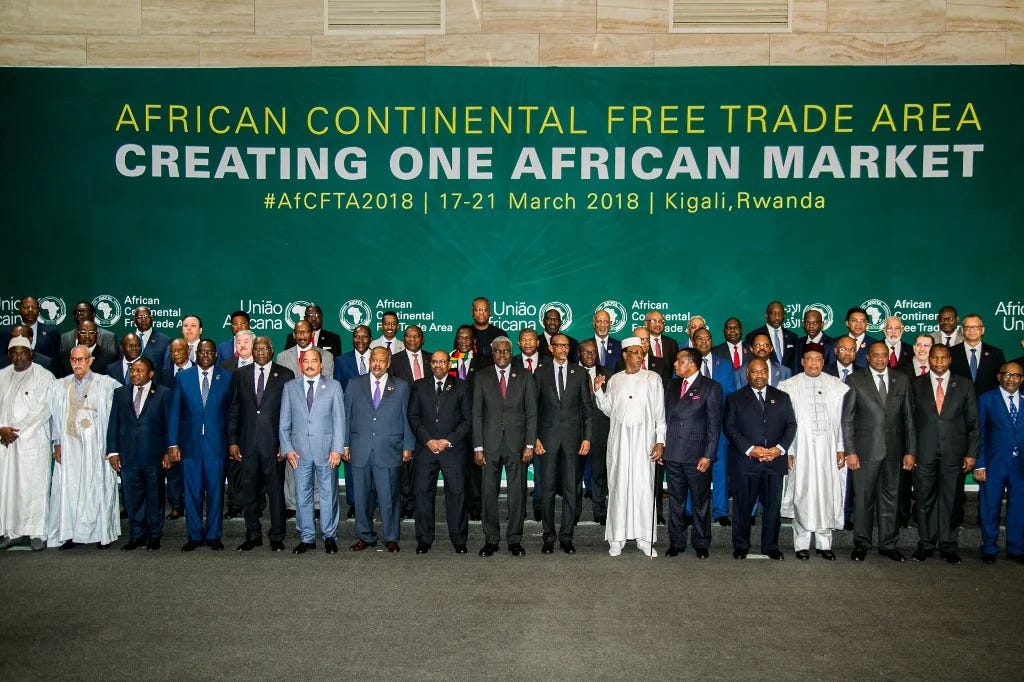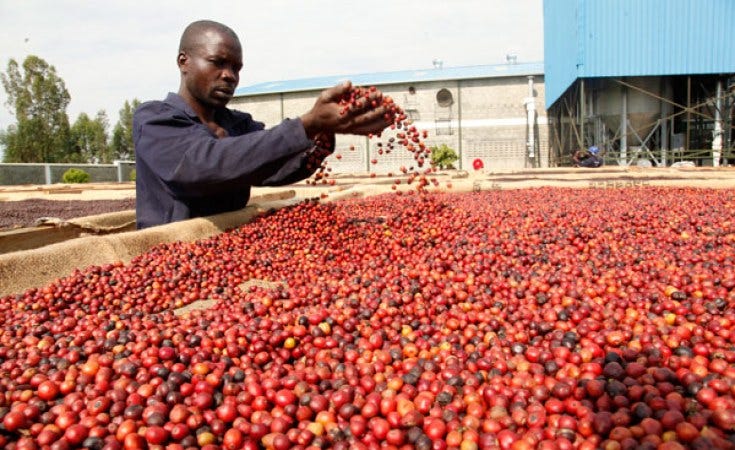Good Morning. Last week, Kenya held its general elections. Kenyans are still waiting for the IEBC (Independent Electoral and Boundaries Commission) to announce the presidential election results.
Lessons from last week:
Misinformation about the election results on Twitter is the new election menace in the social media era.
There was a lot of misinformation about election results, especially on Twitter. Note that it is an offence under the Election Offences Act to make false statements on the elections without reasonable grounds for believing the same to be true.
Kenya’s election costs are among the highest
Chart By Mwango Capital: a financial research firm focusing on African equities
Below is a chart by Mwango Capital, showing the cost of an election in Kenya compared to other countries:
Parastatals are diverting bank loans to fund operational expenses
It is without a doubt that Kenya’s next president will among other things, have to deal with Kenya’s crippling debt situation.
Last week, A report by the Central Bank of Kenya (CBK) revealed that Parastatals are most likely diverting bank loans tapped for projects to fund operating expenses such as payment of salaries and utilities.
The CBK stated that the long-term debt accrued by state corporations did not coincide with the increase in their assets. According to CBK, this is a sign that a significant share of long-term loans was not used for asset purchase and was instead channeled to recurrent spending including salaries, electricity bills payment, and travel.
“The ratio of long-term debt to assets for state owned firms declined marginally, from 69.9 percent in 2020 to 68.5 percent in 2021, while long-term debt accumulation relative to equity increased from 134.2 percent in 2020 to 135.3 percent in 2021” - CBK Kenya Financial Sector Stability Report.
TRADE
Kenya becomes among the first six countries to pilot the African Continental Free Trade Agreement (AfCFTA)
Kenya has listed 14 merchandise and service sectors for trade under the African Continental Free Trade Agreement(AfCFTA).
Kenya’s prioritized sectors in merchandise trade include agriculture, livestock and fisheries, manufacturing, handicrafts, mining, oil and gas.
Priority export sectors under services trade are professional services, tourism, education, health, financial services, ICT, cultural and sports services; and transport and logistics.
Kenya and Ghana were the first countries to ratify the AfCFTA and to deposit instruments of ratification with the AU Commission, after the agreement was adopted by the AU Extra-Ordinary Summit on March 21, 2018 in Kigali.
Despite the launch of the commencement of trade in January 2021, commercially meaningful trade was yet to commence.
The current state of the AfCFTA
54 African Union (AU) member states have signed the AfCFTA agreement with 49 having ratified it, making them eligible to trade.
However, only six countries– Ghana, Cameroon, Egypt, Rwanda, Tanzania and Kenya are leading in the pilot phase.
COMMODITIES
Kenya Risks losing 1.5 Billion Coffee export market in Japan
Authorities in Tokyo raised a red flag over the use of non-recommended pesticides.
Officials in Japan stated that the samples taken out of Kenyan coffee were found to have Chlorpyrifos- an active ingredient found in the insecticides and which is not recommended for use in coffee.
The authorities detected 0.06 parts per million in the coffee that was sampled, which was above the required minimum of 0.05 percent.
Japan is currently Kenya’s sixth largest importer of coffee having earned the country Sh1.5 billion in foreign exchange last year.
What’s next
Japan has raised the compliance checks for Kenyan coffee to 30% from around 10%
The Japanese Ministry of Health, Labour and Welfare now wants all coffee growers in Kenya as well as exporters of fresh beans to exercise voluntary tests at warehouses and at packaging
This means that exporters will have to incur high cost in testing the consignments
NOTE: In 2020, South Korea banned Kenya’s coffee over high levels of the Ochratoxin chemical, which had exceeded the allowable minimum.
Cyber Attacks on Kenya’s Financial system increase
Cyber-attacks have become a key risk to businesses in Kenya on the increased use of mobile and Internet banking that has exposed bank customers to cybercrime, especially fraud, malware, and phishing attacks.
Hacking attacks on Kenya’s financial systems, including mobile banking, rose to 444 million in the year ending June 2022. This highlights the vulnerability associated with increased Internet access in the country.
The cyber-attacks rose from 158.4 million in 2021. This is because of an increasing number of people working from home, ordering products online, and making payments via mobile phones.
WHAT YOU MIGHT HAVE MISSED
The Teachers Service Commission (TSC) is seeking medical cover for its over 340,000 members
The Teachers Service Commission (TSC) is seeking a consortium of insurers to provide comprehensive medical cover for its over 340,000 members and their dependants. The TSC seeks to revoke its contract with AON Minet because of the challenges they face while lodging claims with the company.
The TSC paid AON Minet Ksh 14 billion in 2021.
The TSC, in a call for bids, said that the consortium would be required to cover outpatient, maternity, dental, optical and emergency air and road evacuation services, as well funeral expenses for a three-year period.
NSSF bought Ksh140 million worth of shares in KCB bank
National Social Security Fund (NSSF) raised its stake in KCB by 3.33 million shares. The NSSF now owns 272.6 million shares in the bank, equivalent to a stake of 8.48%,
This means that NSSF is now KCB’s second-largest shareholder after the National Treasury, which maintains a 19.76% stake.
The Constituency Development Fund (CDF) was declared unconstitutional by the supreme court.
The Supreme Court ruled that the CDF Act, which was enacted in 2013 and changed in 2015, violates the principle of separation of powers and hence is unconstitutional.
Under the CDF project, each constituency receives at least Ksh100 million every year and Members of Parliament are to use the kitty for community development projects.
Kenya recorded Ksh 63 billion more in dollar accounts in June
data from the Central Bank of Kenya showed that foreign currency bank deposits held hit a historic high of Ksh 891.5 billion in June, up from Ksh 829.50 billion in May.
The Ksh 63 billion increase in dollar deposits, equivalent to Ksh 2.1 billion daily, was an indication that individuals and companies sought a safe haven for their wealth due to the uncertainty linked to the general elections.
Tanzania to sell its first bond to EAC and SADC countries
Tanzania’s Treasury is seeking Tsh 130 billion ($55.6 million) from selling a five-year fixed rate bond to its citizens and those from East and Southern African trade blocs.
The bond, opened on August 10, is the first to be opened to the East African Community (EAC) and Southern African Development Community (SADC) blocs.
The five-year paper will be auctioned by the Bank of Tanzania (BoT) at a coupon rate of 8.6%







